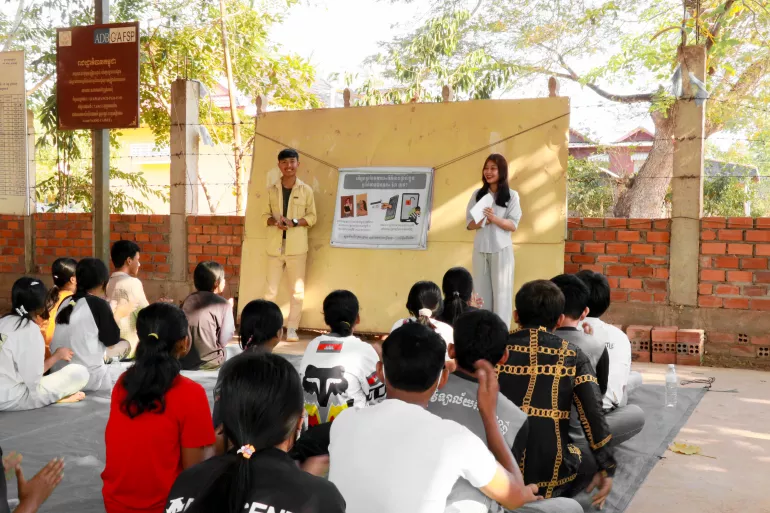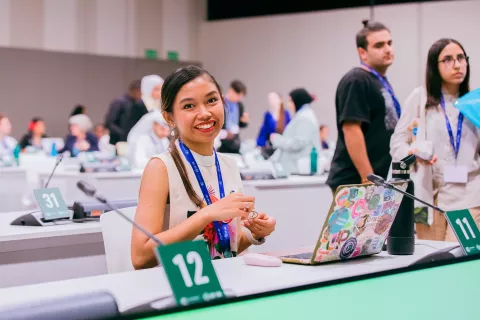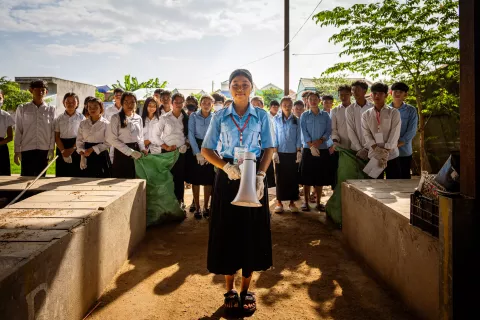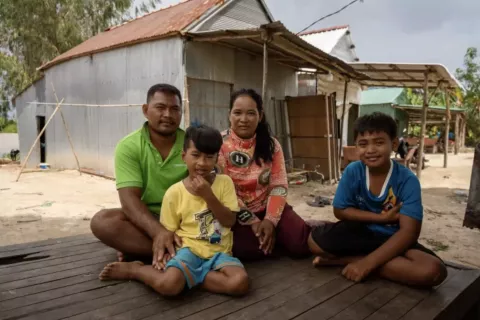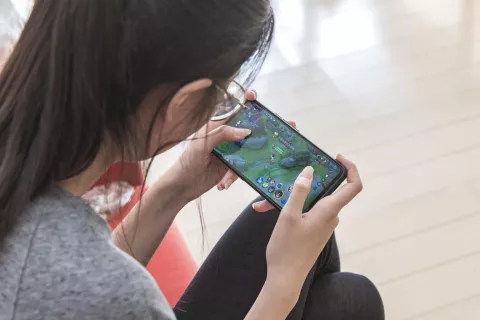I’ve visited Cambodia twice in the last 18 months, as part of my role as adolescent development specialist at UNICEF’s East Asia Pacific Regional Office. It is a country on the cusp of great things, but also carrying a lot of historical baggage. A fast transition to new economic realities, and the threat of climate change is apparent everywhere you go in the country. What is also clear is that young people in Cambodia are aching to lead change in their communities. This makes a lot of sense in a country where two thirds of the population are under the age of 30.
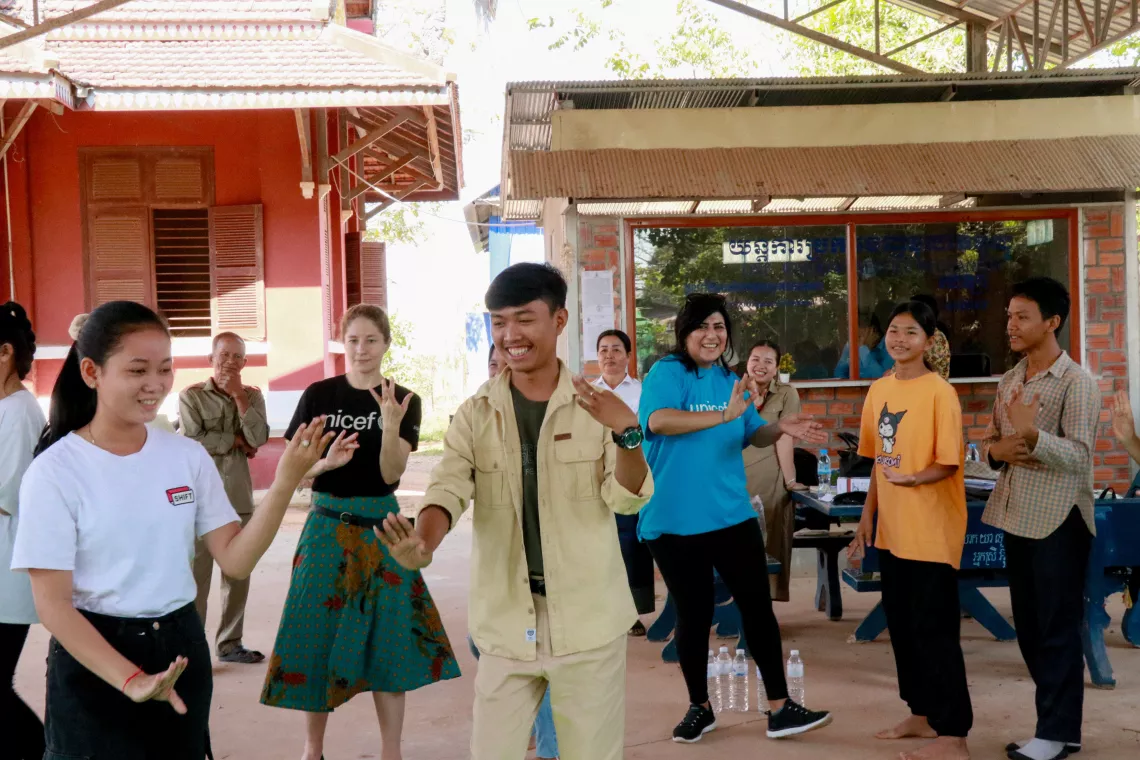
I came this time to visit UNICEF Cambodia colleagues focusing on working with and for adolescents. Considering the difficulties and existing social norms around the role of a young person in society, it was impressive to see just how much was being achieved. We often think of young people as being full of energy and innovation, because for the most part, they are. In Cambodia, it is so clear that young people are not only keen to take action and contribute to their communities, but they are ready. They are ready in a variety of ways: skills, commitment and innovation.
What was also very encouraging to see is that the adults in their lives are also starting to see the importance of young people in leading change. It’s still only nascent but promising: there are now official youth representatives in several communes across the country. More are likely to join as the news of the benefits of working alongside young people continues to spread. High school students are leading campaigns around making their communities more sustainable, improving waste management practices and even innovative approaches to sustainable tourism in rural areas. For example, a group of students raised awareness of this issue in their village and as a result neighbours are recycling and upcycling plastic containers, including for garden pots and decorations.
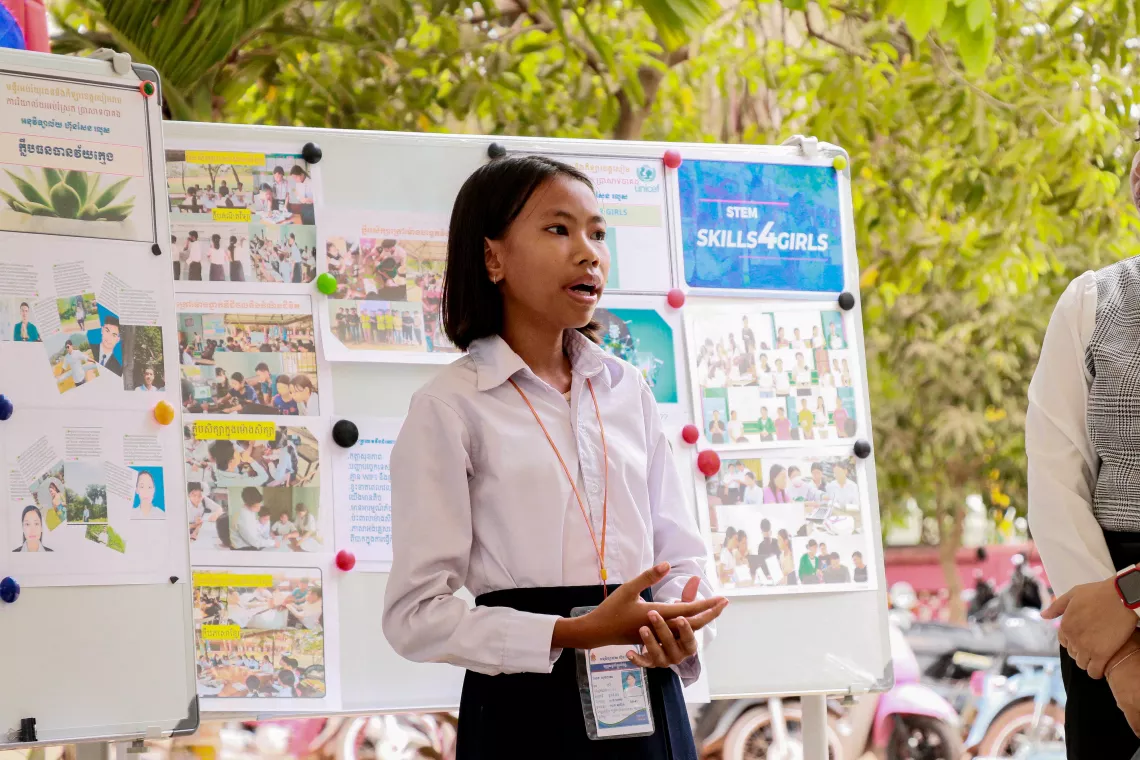
As I explored the work done on green skills, digital skills for girls, adolescent and youth advisory groups for communes, I tried to understand what motivated these girls and boys to trudge through barriers and obstacles in their way. Overwhelmingly, the young people I spoke to were all adamant in their missions, saying “I see problems in my community, and I want to resolve them.” The issues ahead of them did not seem to faze them. This is impressive, though not uncommon. But far from making us complacent, it should also give us a new impetus to support them in their initiatives, and especially, to support adults to open pathways for this work to bear fruit.
The issues they are passionate about are also striking, they include: climate, online protection, accessing green jobs in the near future, and more. All common across the region, but the way they want to make change really stands out. The young people I spoke to want to work with their communities, they believe that this is the most sustainable way to achieve results.
One 19-year-old girl, Phan Yuchakishared shared her story with me,
“I joined the Adolescent and Youth Reference Group 5 years ago because I was so worried by what I was seeing in my community. There was so much violence and no way out for many of my friends and classmates. I hope that by joining this group, I can give a voice to the voiceless and improve things in my village.”
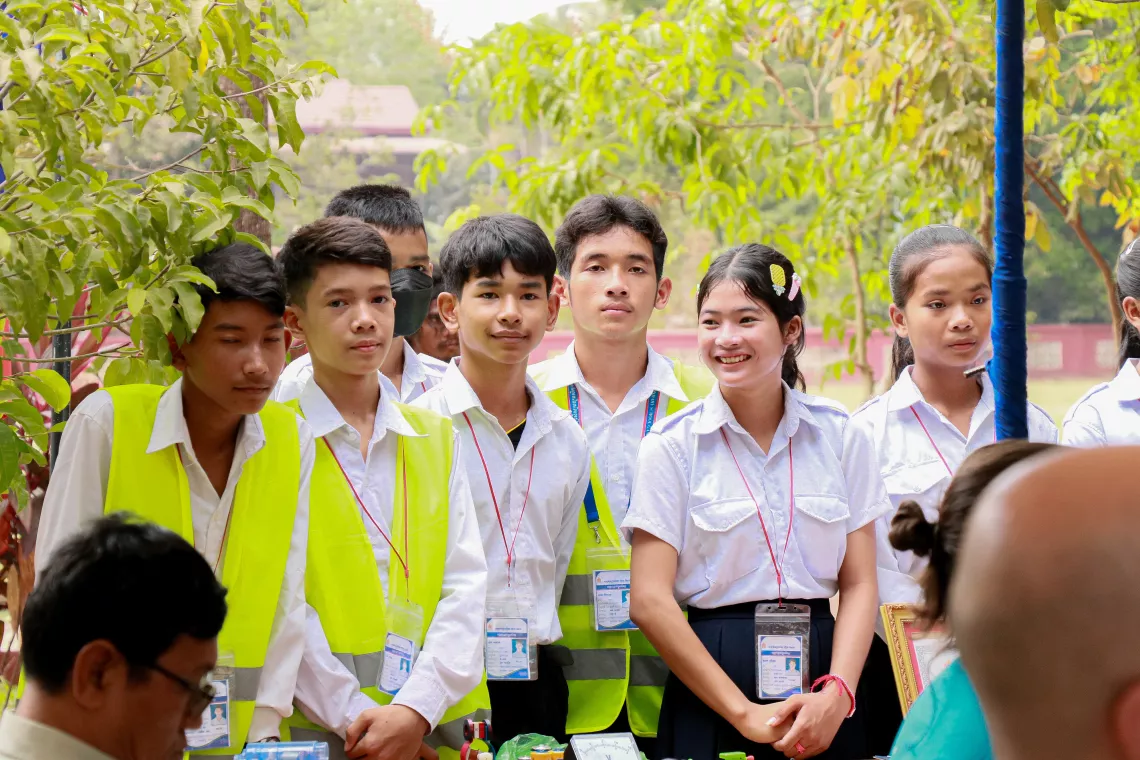
There are winds of change in Cambodia. The country is clearly moving forward, though maybe on a slower pace than their youth would like. This makes it absolutely critical for UNICEF to continue convening different parties, such as local government officials, parents, civil society and young people themselves to discuss and learn to work together. In addition, support for this work is especially important as it provides safe spaces for young girls and boys to form ideas, build skills and eventually lead change in their communities.
The trip was eye-opening for me, as most field visits are, bringing the reality of the situation of children in a neighbouring country much closer to my own work. What will always remain is that the importance of upholding a child’s right to participate, is ever more important. UNICEF has a unique role in this, namely, to ensure that girls and boys are able to inform policies, programmes, lead change and ultimately, create a better future for all.
Ticiana Garcia-Tapia is an Adolescent Development Specialist at UNICEF East Asia and Pacific


